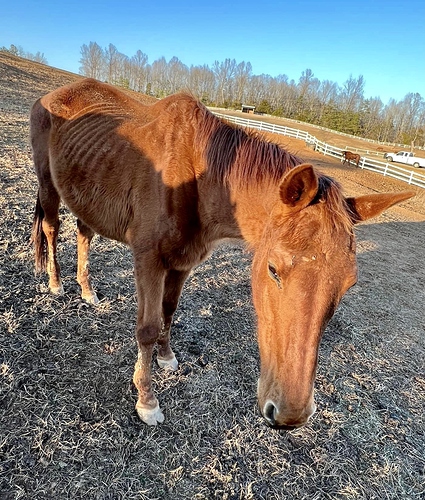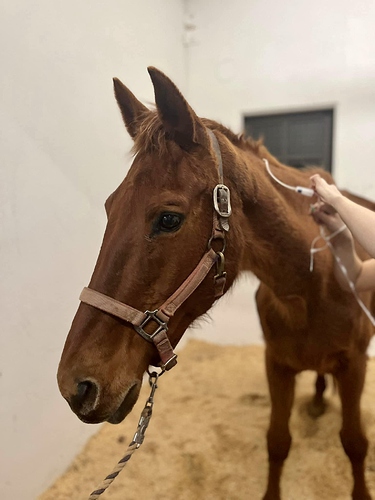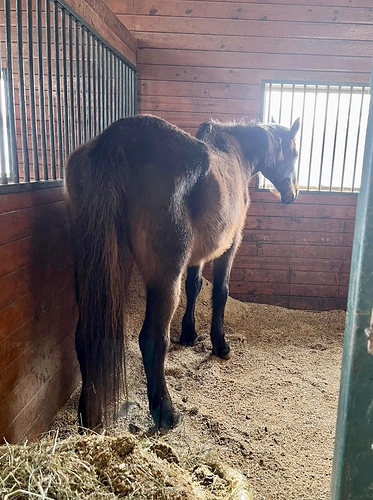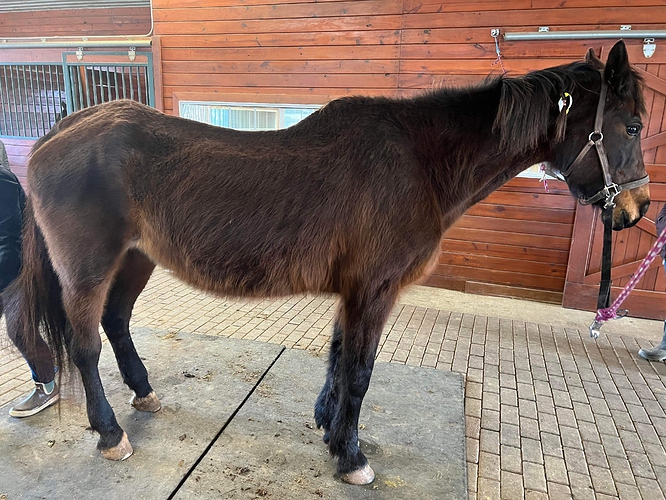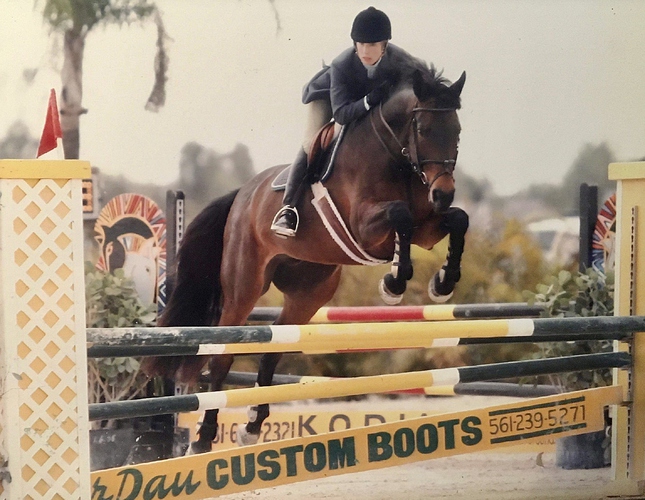My original statement was about a far bigger picture than just this situation. I agree that many of these owners were also victims along with the animals. But unless we talk about the ways going forward to avoid these situations in the future they are guaranteed to happen over and over. That was my point–not about this situation necessarily, but about how owners in general can try to protect themselves and their animals from unnecessary suffering. If we can’t learn from this, then all the suffering is due to be repeated in more ways than one.
ETA–sorry if I seem to be victim blaming. That is not my intent at all. I work in a field where if disasters happen that are catastrophic or near catastrophic we go back and review and change the system so it does not happen again. We change processes and understanding so similar mistakes become less likely. This, to me, was a catastrophic event for many animals. Secondarily for their owners. So if we can review and learn so we can all not make the mistakes in the future that led to this it may help other animals and owners out. Like I said, I am glad this is public.
I am incredibly sorry for these owners. It appears they made a responsible decision to board their horses with a respected horse person in the community and at a reasonable (not cut-rate) boarding cost. But they had the bad luck of choosing a bat-s**t crazy horse person.
At the same time I do think it is useful to me as a horse owner to think through how I could avoid making this mistake myself in the future. I think that’s what a lot of the posts that seem like second guessing or blaming the owners are about.
That’s true but I think the suggestion it’s more responsible to euthanize a horse rather than ever send one to a well reputed retirement facility is kind of like going back after a hurricane and deciding if you bulldoze everything next to the ocean, no one can lose their home from a storm surge again.
The real failure here is animal control which has been called many times and done nothing. Horse removal score: Railbird and Friends: 15. Animal Control: 0.
I agree with this 100%. But you are right that this can be a tough subject.
I have known veterinarians who are reluctant to euthanize even when a horse has no comfortable future ahead of it. And is beyond an owner’s capacity to care for it, logistically and financially, and is not a candidate for another home (which is a risk situation as it was here).
There are other veterinarians (usually older, interestingly enough) who are on board that if a horse has basically used up the retirement funds and capacity, it is ok to say goodbye humanely.
And there are caregivers - owners and otherwise - who excuse miserable condition with the phrase “he’s (she’s) old”. But that condition indicates that the horse is not having good days.
For me these are general discussion remarks, not to do with the owners in this case. I have no knowledge of their individual horses and situations to make any remarks on what these owners did or did not do.
I will say that owners who could not be regularly with their horse(s) finding out that the person entrusted with their care has utterly failed in that responsibility is something that happens. From rank neglect to abusive training. These owners are not the only ones by any means.
Maybe this needs to be two threads to help separate the discussion of this very sad situation from a general conversation about decisions regarding the care and possible euthanasia of aging or otherwise un-used horses.
100% on this. IMO. Again a general observation separate from the situation reported, I have no comments on those owners.
Many, many decades ago it was much more common that a rancher would give a horse a year or two of peaceful retirement and then say goodbye, even if the horse was in good condition. It was part of ranch management when a dozen or two working horses were in residence for life. A certain amount of pasture was dedicated to the retirees. But the retirement pasture was not allowed to be over-stocked and over-grazed. For more to be added, some needed to leave for the stars, as it were. And if there was a solidly-bonded pair of horses, they both went at the same time.
Horses and animals generally don’t see life, or know life, as do we humans. They don’t know their projected lifespan. They don’t know how old they are. Or their health prognosis.
They only know if they are having a good day today. Or not.
Again, nothing to do with the specific situation that kicked this discussion off, just general thoughts.
I have too.
And because of that experience, have nothing but support for anyone contemplating the decision. It really upsets me to see the shaming that can go on around that decision. I suppose I should do a better job of avoiding Facebook.
The particular vet I’m thinking of has very recently retired. I’m kind of wondering if their feelings on the subject have evolved one way or the other.
I am occasionally shocked at both large and small animal vets suggesting to owners a course of drastic and invasive treatments that have a poor chance of success, without discussing a humane end-of-life. Very, very expensive treatments, into multi-thousands of dollars - and not outlining the expense, either. Sometimes to people having little chance of being able to pay for an effort that is likely to be stressful and uncomfortable to the animal, with a low chance of success.
I don’t know if they are trying to drain wallets (have met at least one vet who admitted that) or … what. I just don’t understand the rationale.
I had a vet suggest stitches for a dog with an ugly cut, but not a serious threat of untoward consequences of treated with salve and rest. Didn’t really need a bandage (was in an almost impossible place to bandage). The vet did not mention the cost. I asked about the cost. $600. After I took about 20 minutes to observe the dog who was in no distress and had forgotten about his injury, I passed. Dog healed up within 2 weeks without even a mark or scar - or any acknowledgement on his part that he had a problem.
I don’t know what vets are taught in vet school about these issues. Helping an owner evaluate options by success rate. Being up front about costs. Being willing to make euthanasia an option - and perform euthanasia. I do understand that euthanasia on a seemingly vigorous animal has to be an emotional hardship. But it would be better to hand that off to someone better equipped to do the deed than to put the animal through horrors just to spare human feelings. Just IMO.
Here’s a reality check. I retired a jumper at 20 due to ringbone and arthritis. It’s very likely that this horse, given good care, would live 5+ years in retirement. You can count on spending $450/month on retirement if you’re boarding (that includes basic vet care and farrier trims in my case). Over the course of 5 years, that’s $27,000. So if you don’t have that amount of money to spend on retirement, be realistic with yourself. I agree with a previous poster that it’s not unkind to do 1-2 years of nice retirement and then humanely euthanize.
Yup - I retired one at age 15, and he lived until 29. I don’t even want to do the math on how much that cost over the years. Had it gotten to the point where my financial solvency was threatened, I would have chosen euthanasia, but fortunately that never happened.
I moved him several times in retirement, ultimately ending up in a place about 4-5 hours drive away. I got several pictures a year of him enjoying a field or his stall, and I trusted the person I boarded him with (she was wonderful). But I still made a point of visiting him in person at least once a year. Not so much to avoid this issue but because I wanted to see for myself that he was still enjoying life and that it was not time to let him go. My focus was not on checking his weight or his feet, but looking to see whether he still had a light in his eyes.
Based on the events above, I think it’s a really good idea for anyone who has retired a horse to try to visit the retiree once a year. Granted, things can go south in a few months, so a yearly visit is no guarantee. But it’s something. It tells the barn owner that you are still monitoring this horse, and it gives you a chance to see for yourself whether your horse is still enjoying life.
To be clear - I absolutely do not fault the owners in this situation - they were all doing what seemingly was best for their horses. But there’s a lesson I’ve learned here that even when you trust the barn owner, you still need to do an occasional in person check yourself.
I am very grateful for my vets, both the large and small animal vets. I have never felt pressure not to euth, and have only received support. I have had vets out for quality of life consults when I felt like my emotions were clouding my judgement, and I always got a version of “better a week too soon than a day too late.”
Maybe I self select vets whose priorities align with mine, but I have literally never had a vet question an euth decision. And I know they HATE that part of their job.
I have always had frank discussions about the cost of care, and in some cases, not pursuing a diagnosis through expensive testing when it wouldn’t affect the treatment plan.
In this situation, I really feel for these poor owners, because paying for the refeeding and rehab, or the colic treatment at a vet clinic is going to be expensive and totally not their fault. If the horses were being cared for appropriately, they wouldn’t have to bear the expense. I sincerely hope they can recover some the veterinary expenses from the farm owner.
Just sickening and heartbreaking. Those poor horses. 
Have any charges been laid?
And why has there been no news coverage?
The news doesn’t want to cover until there has been a charge filed due to some kind of journalistic ethical standards. I get that the rules have to apply but it’s annoying. Hopeful to have some coverage this week.
I really hope the owners get together and sue for all costs incurred as a result of this situation. I also hope the state prosecutes for fraudulent operation of a nonprofit foundation.
A little spotlight on Ruby, one of the horses removed from Byrd’s Retirement Foundation. Now 23 years old, this Canadian Sporthorse was a dynamite eventing partner in her prime and took her rider all the way up to Intermediate. Her owner is devastated that her mare was allowed to deteriorate to her current condition.
Ruby’s owner has an eighteen month old toddler and is eight months pregnant. She thought she was safely placing Ruby in an environment where she would receive the care and attention that every horse deserves.
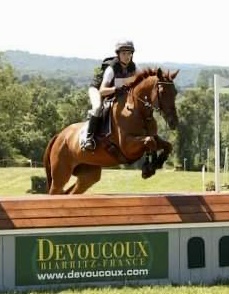
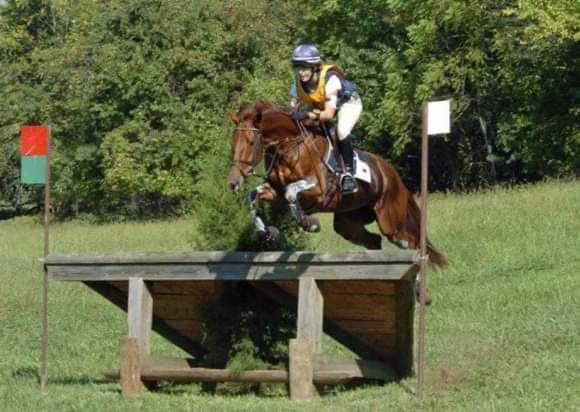
Spotlight on Opal!
Another horse removed from Byrd’s Retirement Foundation is Hidden Creek’s Opal, a 24-year old Holsteiner mare who is a granddaughter of the famous stallion Landgraf.
Opal was a successful jumper throughout her life, competing up to 1.30 with a professional and with her amateur owner Lori up to 1.15. She was still showing riders the ropes in the Children’s/Adult Jumpers in 2018 and was hacking around her home farm as late as 2021.
Opal, along with two of her stablemates Paratrooper, an imported Dutch Warmblood Grand Prix jumper, and Cannonball, a Thoroughbred who was a fabulous polo pony for Lori’s husband and foxhunter with Lori’s son, moved to Byrd’s Retirement Foundation in spring 2022 with the intention of enjoying the rolling hills of Virginia away from the hectic show scene in Wellington.
All three horses are now recovering at Veterinary Rehabilitation Service of Virginia. Opal and Cannonball were each initially assessed with BCS scores of 1.5 and 2 respectively.
Lori said “I am so grateful for the people who are looking out for these horses and willing to put their time and resources toward getting them safe.”
While the owner of these horses is not requesting financial assistance for their recovery, we can still help other horse owners!
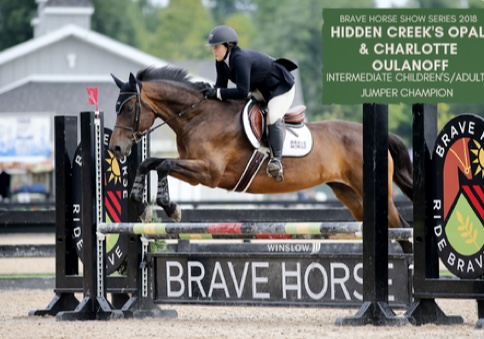
Just unbelievable….
I get that it’s annoying (and you know I’m on your side here), but the legal implications of libel are very real for news media, especially local outlets and the niche horse publications—otherwise you know that I’d already have helped you cover far and wide.
The problem might be a mental and/or physical decline of the Barn Owner rather than deliberate neglect. It is a fairly common issue.
100% - just because something personally annoys me doesn’t make it wrong! The media has their own rules to play by.




